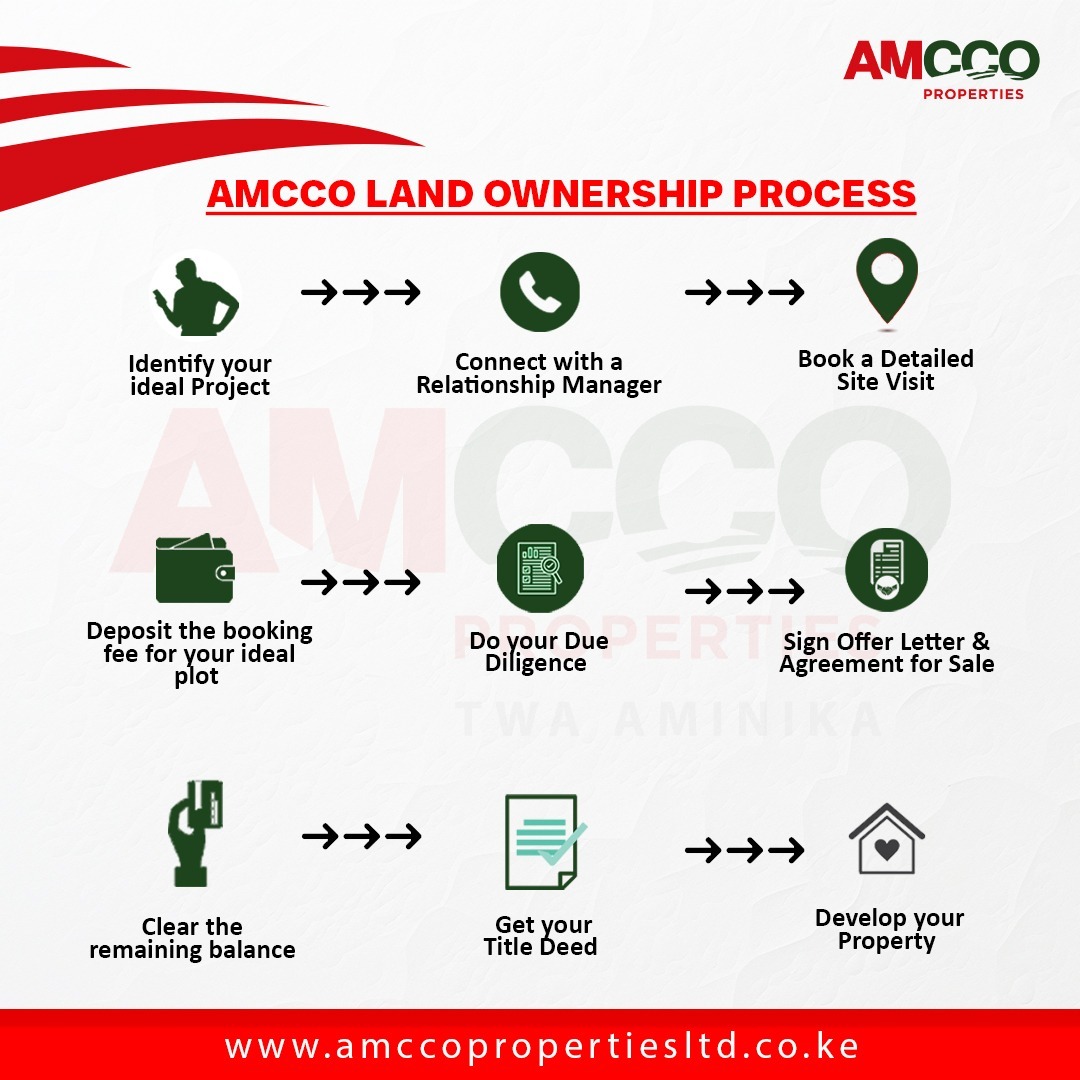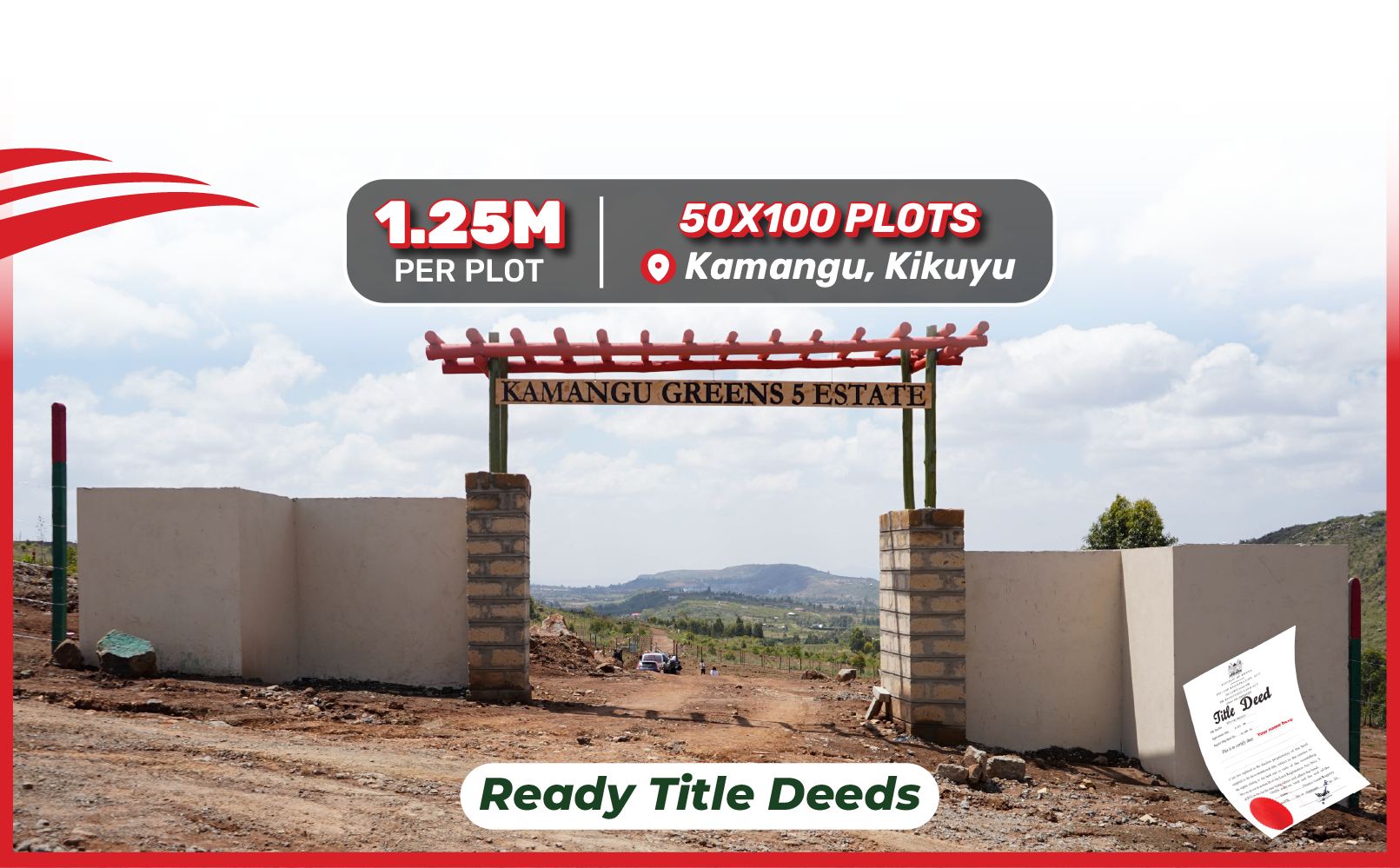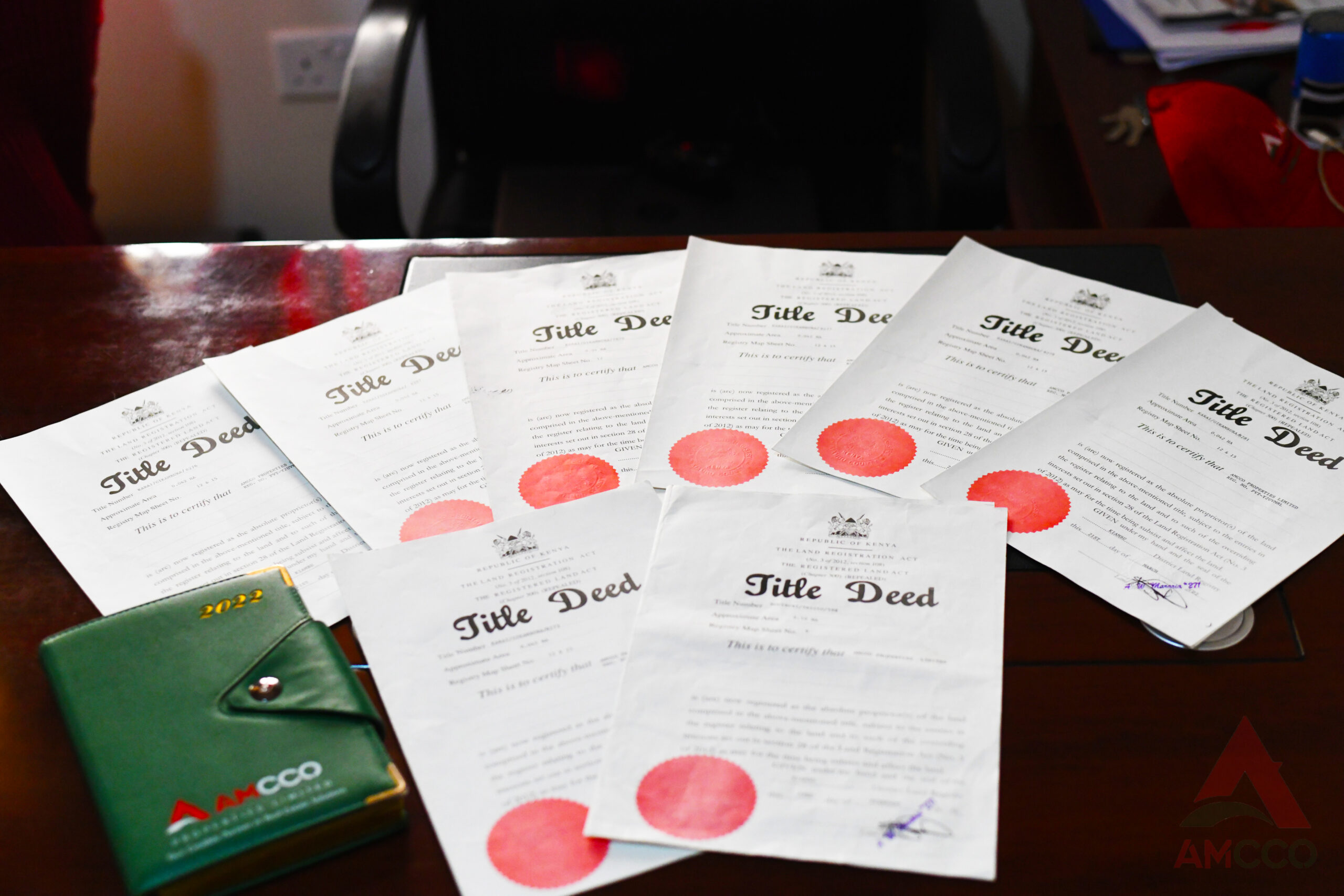10 Land-Buying Steps in Kenya
It is every person’s dream to own a place they can call their own. A roof over one’s head is the surest form of security for mankind. Closer home, our cultures place a premium on owning a piece of land as well as a house. While the rising cost of land has also given rise of people owning houses and apartments on shared land, the basic principle is the need to own a place to call home.
The demand for land especially in urban areas has skyrocketed in the past couple of years, driven by the following factors;
Land is one of the most valuable fixed assets one can own
Rural-urban migration driving up demand for housing in urban areas
The government has been initiating and completing development projects in urban areas and satellite towns, which has consequently led to increased demand for land in these areas.
The constitution of Kenya holds that all citizens can own land anywhere in Kenya if they follow the legal procedures for owning land.
Due to increased demand for land, fraudsters have taken advantage of this situation to swindle Kenyans of their hard-earned money as well as the existing gap in the knowledge on how to go about the process of owning land. The land buying process is anchored on the basic principle of the law of contract. Thus, land ownership must follow all laid down contractual and legal procedures to avoid any future conflict which can also lead to loss.
If you are planning to own land anywhere in Kenya, then it is important that you follow the following 10 crucial steps.
Identify the piece of land you would like to own
Before committing your money to the ownership of any piece of land, be clear on the location, soil type, and size of land you would like to own. This is based on what you plan to do with the piece of land and thus, you need to have basic things that must be met.
Conduct a search and inspection of the identified piece of land
Once you have identified the ideal piece of land, you should request the landowner to give you a copy of the title deed associated with the piece of land. This is what you will use to authenticate the ownership of the piece of land at the Ministry of Lands’ county headquarters office.
At the Ministry of Lands office at the county level, you will be required to fill a land search form and attach the copy of the land’s title deed. You will also be required to pay KSh 520 and this process can take between 2 hours and a day.
This is an important step as this is the place where you will get to learn about any legal issues associated with the piece of land. Many people have overlooked this step and ended up losing their money in shoddy land deals. For example, there may be a caveat placed on a piece of land due to family or legal issues and this effectively means that the land cannot be transferred to any other person.
You may also choose to use a registered advocate to conduct this process at a fee.
Confirm if there are any pending land rates
Land rates are taxes imposed on land by country governments and they vary from one county to another. Any pending land rates may have an impact on the cost of purchase, if the seller wishes to pass any pending costs to the buyer.
To find out if there are any pending land rates, visit the local country offices. Once all rates are cleared, a certificate of clearance is issued as a legal proof that there are no pending rates.
Obtain a land map
Purchase a land map from the local Ministry of Lands office or the local surveyor. Most people prefer getting it from the office of the local land surveyor as it is faster. It costs KSh 300.
You should obtain 2 land maps. One of the land itself (drawn to scale) and another one which captures the land surrounding the piece of land you wish to purchase.
Conduct a ground verification exercise
Once you have the 2 maps, you should visit the piece of land on the ground together with the surveyor and the seller of the piece of land. This is meant to verify the actual dimensions of the piece of land.
The surveyor measures the piece of land based on the measurements on the maps and places beacons on your identified piece of land. Surveyors charge KSh 1,000 for every beacon placed. Beacons are important as they demarcate the piece of land you wish to buy and are important in forestalling any future disputes with your soon-to-be neighbors. You should also ensure that the neighbors agree on the boundaries.
Price negotiation and offer
Once you have authenticated the real owner of the piece of land, its location as registered at the ministry of lands, the acreage of the land, and whether it has any legal issues, you can proceed to the next step if there are no issues associated with the land.
At this stage, you will agree on the price at which you will acquire the piece of land and the seller’s advocate will then proceed to draw up an offer letter. The offer letter should capture the details of the seller and buyer, the proposed price at which the land is to be bought for, a description of the land, mode of payment, and the documents to be supplied by the seller to facilitate the land transfer process.
At this point, the seller may request that you make a deposit of 10%. This is done through your advocate to the seller’s advocate.
Please note that the seller’s spouse and children should be present at this stage and agree with the transaction to avoid any future disputes which may nullify any transactions made without their consent.
7. Visit the land control board
The land control board is stationed at the local Ministry of Lands office and consists of village elders and an assistant county commissioner. Its main duty is to protect the seller from destroying themselves in the land-selling process, such as selling land which should not be sold or any land that has a family dispute such as one spouse selling land without the consent of the other. Thus, the board must give the final word in the sale of the land you wish to purchase.
The board sits once per month and charges KSh 1,000
A faster alternative is the Special Land Control Board (SLCB) which consists of the assistant county commissioner and the 2 parties involved in the land transaction. This board can take up to 2 hours to give consent depending on the availability of the assistant county commissioner. It charges KSh 5,000. You can make use of this board instead of waiting for the monthly meeting of the land control board.
Land transfer
Once you are clear that the land is genuine and you have obtained the consent of the land control board, you can proceed to sign the land transfer documents, after making all the necessary payments.
To complete the land transfer process, you need to have land transfer forms signed by the seller, the consent of the land transfer board, a KRA PIN certificate, a land search form, a clearance certificate from the county council, the land sale agreement, 3 passport photos, and the old title deed. These are presented to the Ministry of Lands to facilitate the change of ownership process.
It will cost you KSh 5,000 to process the new title deed and this process takes about 2 weeks.
Once transfer is done, the land is now yours and you are supposed to complete any pending payment to the seller of the land.
Paying for stamp duty
After purchase
As a buyer, you should confirm with the ministry of lands that the land has your correct details. This should be done after a week and if there are any issues, you can have them corrected.
Land remains a precious asset in Kenya. It is your responsibility as the buyer to ensure that all legal procedures are followed to avoid any future complications with the land you buy and to secure your investment. The above 10 steps are based on the legal procedures in Kenya and are meant to protect the buyer and the seller. You can use an advocate if you are not sure of what needs to be done.



